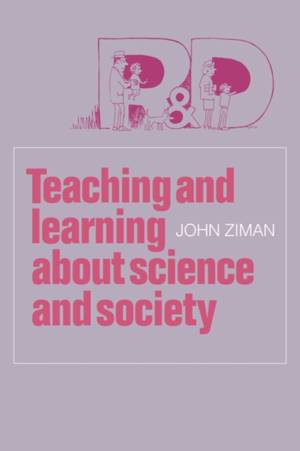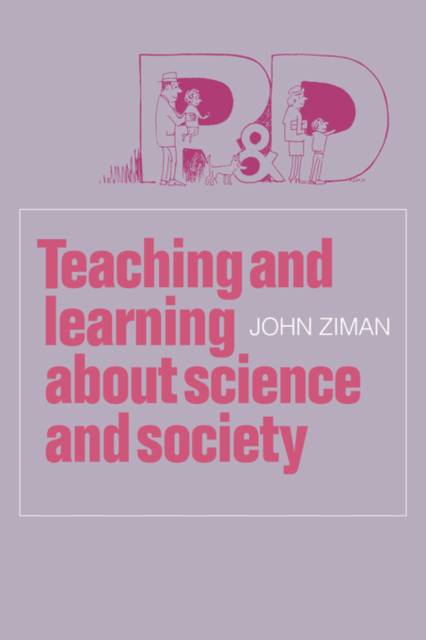
- Afhalen na 1 uur in een winkel met voorraad
- Gratis thuislevering in België vanaf € 30
- Ruim aanbod met 7 miljoen producten
- Afhalen na 1 uur in een winkel met voorraad
- Gratis thuislevering in België vanaf € 30
- Ruim aanbod met 7 miljoen producten
Zoeken
Teaching and Learning about Science and Society
J M Ziman, John Ziman, John M Ziman
Hardcover | Engels
€ 171,95
+ 343 punten
Omschrijving
'Science, Technology, and Society' - STS - has become a major educational theme. There are many courses in schools, universities and other institutions, dealing with all sorts of topics such as the history of science, energy policy, industrial innovation, technology assessment, Third World development, scientific method, and so on. But what is this subject really about? Why should it be taught? Who should study it? What should they learn? How should the subject be approached? Who should teach it? These questions are being asked by both teachers and students in many fields of science, engineering, medicine, social studies, and the humanities. This informal account of the rationale of STS education shows how many diverse factors are involved - the philosophy and sociology of science and education, social and cultural objectives, political ideologies, vocational needs, scholarly standards, institutional capabilities, etc., not to mention the practical realities of teaching and learning at all levels.
Specificaties
Betrokkenen
- Auteur(s):
- Uitgeverij:
Inhoud
- Aantal bladzijden:
- 192
- Taal:
- Engels
Eigenschappen
- Productcode (EAN):
- 9780521232210
- Verschijningsdatum:
- 31/12/1980
- Uitvoering:
- Hardcover
- Formaat:
- Genaaid
- Afmetingen:
- 162 mm x 235 mm
- Gewicht:
- 489 g

Alleen bij Standaard Boekhandel
+ 343 punten op je klantenkaart van Standaard Boekhandel
Beoordelingen
We publiceren alleen reviews die voldoen aan de voorwaarden voor reviews. Bekijk onze voorwaarden voor reviews.











